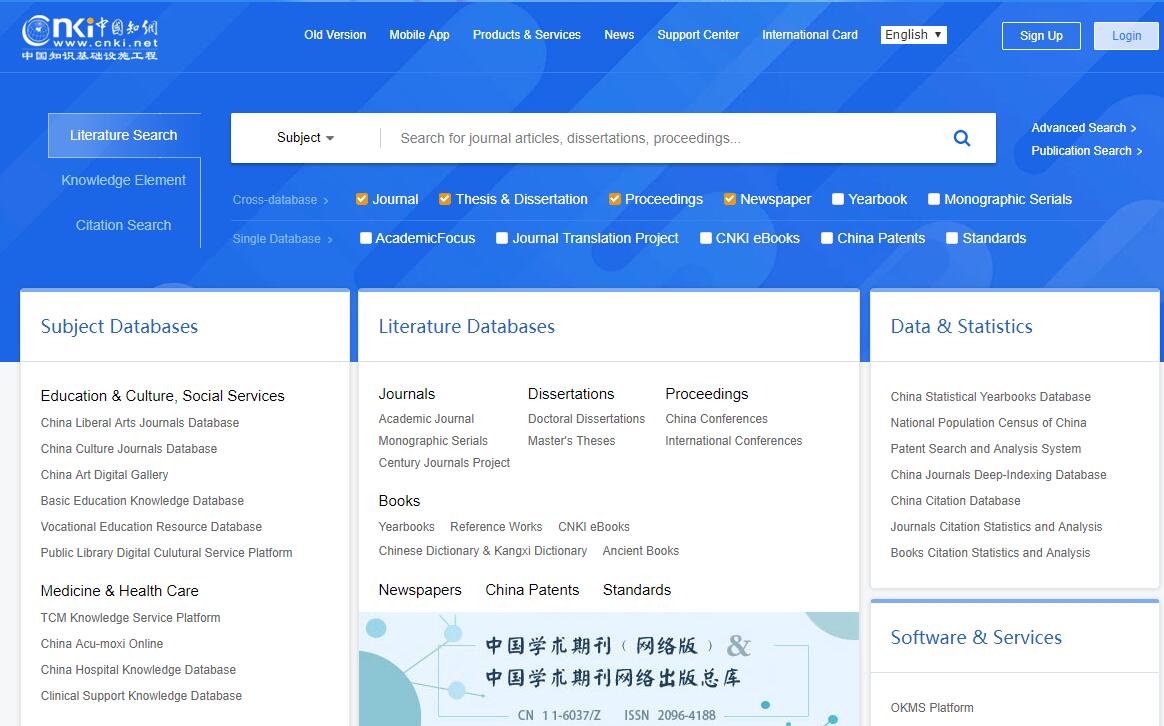


Snapshot of CNKI
China’s largest online academic library CNKI has again fallen under criticism of having a monopoly like its international counterparts, with experts and writers calling on government measures to boost the database’s social services.
CNKI, or China National Knowledge Infrastructure, reportedly has over 200 million academic articles, making it the inevitable database for academic writers in China. However, it is also a huge profit-driven company. The financial report in the first half of 2018 from CNKI’s mother company Tsinghua Tongfang showed that its gross profit rate stood at 58.83%, Science and Technology Daily reported.
The rising service cost is not news to many libraries and universities. According to China Daily, CNKI in 2014 charged Yunnan University 700,000 yuan ($103,611), instead of the original 400,000 yuan, for access to the site. In 2013, Capital Normal University paid CNKI 1.5 million yuan, which rose to 1.8 million yuan in 2014 and to 2.16 million yuan in 2015.
Ni Jing, an associate professor from East China University of Political Science and Law, observed that CNKI services increase in price every year, while most libraries continue using its service and have little bargaining power. “This shows that CNKI has a strong ability to control related markets,” Ni said.
CNKI pays researchers only a small amount of yuan for their work at the time of acceptance. It does not pay them when their papers are downloaded or cited, even though users must pay to access the material. Even the authors themselves need to pay for their own essays if they wish to download it from CNKI, Ni explained.
Being a national knowledge database, it may be justifiable for CNKI to have a monopoly in the market, some experts noted. However, CNKI should also support the communication of academic papers and knowledge.
Professor Song Xiaoting from Tongji University said that more regulations should be set up regarding the development of such databases, and also called for setting up a national database for free and commercial research papers that provides more incentive to write in order to boost academic exchange.
 Fire brigade in Shanghai holds group wedding
Fire brigade in Shanghai holds group wedding Tourists enjoy ice sculptures in Datan Town, north China
Tourists enjoy ice sculptures in Datan Town, north China Sunset scenery of Dayan Pagoda in Xi'an
Sunset scenery of Dayan Pagoda in Xi'an Tourists have fun at scenic spot in Nanlong Town, NW China
Tourists have fun at scenic spot in Nanlong Town, NW China Harbin attracts tourists by making best use of ice in winter
Harbin attracts tourists by making best use of ice in winter In pics: FIS Alpine Ski Women's World Cup Slalom
In pics: FIS Alpine Ski Women's World Cup Slalom Black-necked cranes rest at reservoir in Lhunzhub County, Lhasa
Black-necked cranes rest at reservoir in Lhunzhub County, Lhasa China's FAST telescope will be available to foreign scientists in April
China's FAST telescope will be available to foreign scientists in April "She power" plays indispensable role in poverty alleviation
"She power" plays indispensable role in poverty alleviation Top 10 world news events of People's Daily in 2020
Top 10 world news events of People's Daily in 2020 Top 10 China news events of People's Daily in 2020
Top 10 China news events of People's Daily in 2020 Top 10 media buzzwords of 2020
Top 10 media buzzwords of 2020 Year-ender:10 major tourism stories of 2020
Year-ender:10 major tourism stories of 2020 No interference in Venezuelan issues
No interference in Venezuelan issues
 Biz prepares for trade spat
Biz prepares for trade spat
 Broadcasting Continent
Broadcasting Continent Australia wins Chinese CEOs as US loses
Australia wins Chinese CEOs as US loses